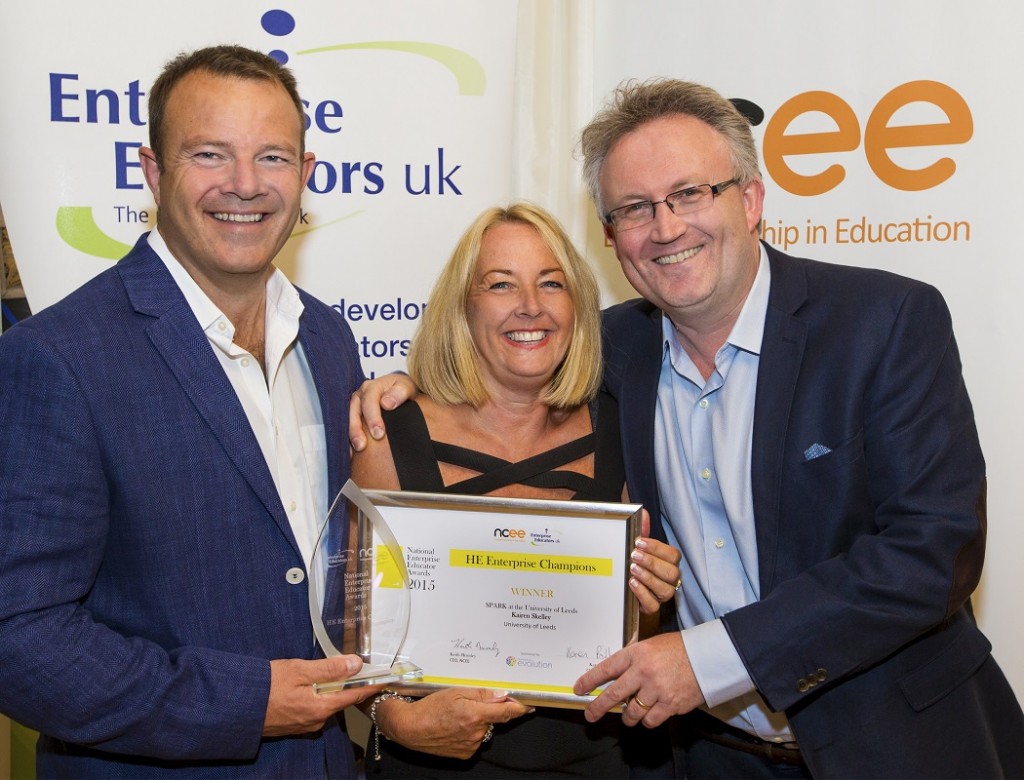In the spotlight:
Name: Kairen Skelley
Location: Leeds
Occupation: Head of Business Startup at University of Leeds
You are an influential individual within the enterprise education space. What does ‘enterprise education’ mean to you, and why do you think it’s important?
I feel that student enterprise equips our young people with skills, confidence, and entrepreneurial capability by offering them opportunities to gain knowledge and understanding of the business world. We help develop employability skills so they stand out whether they are applying for jobs or starting their own business.
How did you first become involved with enterprise education?
I became involved in enterprise education after owning my own business – a chain of sports retail outlets across Yorkshire – and wanting to help others.
In your experience, how does the UK compare to the rest of the world in terms of progress in this sphere?
The UK is becoming very competitive in terms of progress, however we can always learn from others. I recently visited Harvard and MIT to look at their offering and see if they are carrying out activities that could work in the UK, particularly at Leeds University. It was an interesting and informative study.
You were named HE Enterprise Champion at the National Enterprise Educator Awards 2015 and, in the same year, Leeds University was shortlisted Entrepreneurial University of the Year at the Times Higher Education Awards. Congratulations! What advice can you give to other educators and institutions who want to follow in your footsteps?
Develop a clear strategy for embedding enterprise education by working closely with academics, whilst simultaneously developing strong links with the alumni base and the external community.

Kairen Skelley is presented with her trophy at the National Enterprise Educator Awards 2015
Your work with SPARK – the Leeds University business startup service – has helped launch over 250 businesses. Why is it important that students have access to such services, and how can they use them to their best advantage?
Spark is based in the careers centre at the University of Leeds and provides support to students and graduates wanting to develop their business ideas. At Leeds, we see starting a business as an employability opportunity. As a result, we want to give students the skills to do this. By developing commercial awareness and analysing the market, an individual can make an informed decision about all the different opportunities on offer. Through Spark, we provide the space for students to explore whether they want to be an entrepreneur in a safe environment, and without getting into any further debt.
There’s an age-old debate about whether entrepreneurs are born or made. Can you weigh into this?
I feel I see both types – born and made. But this is an ongoing discussion amongst our team!
For students who don’t want to be entrepreneurs, what other benefits does enterprise education provide?
Looking at Spark specifically, we help students develop strong employability skills, commercial awareness, and connections with an outside network – all of which encourages individuals to look at different options.
Where do you hope to see enterprise education in five years’ time?
I would like to see the mindset of enterprise being embedded throughout the whole process of higher education, both in the curriculum and via co-curriculum activities. I would also like to see even further engagement with alumni.
What does a typical day look like in the world of Kairen Skelley?
A typical day may be planning the strategic future of Spark, engaging with alumni to involve them with gifting, and working on the operational side of the startup team. I have regular meetings with the external environment and current business startups. Every day is very varied and always exciting!
And finally, Kairen, tell us: if you were an animal, what would you be and why?
A kangeroo. Always hopping around but very maternal!





Leave a Reply